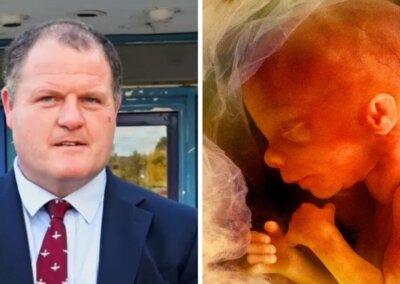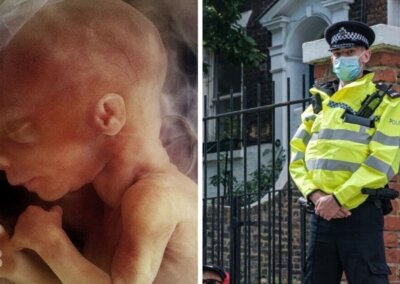The British Medical Association (BMA) has voted to support the implementation of censorship zones around abortion centres in the UK.
This vote comes within the context of a prolonged battle over the legality of abortion censorship zones introduced by both Ealing and Richmond councils over the last year.
These censorship zones around abortion centres, come in the form of broadly worded Public Space Protection Orders (PSPO) which make it illegal to have conversations about or offer alternatives to abortion; pray; offer leaflets that outline the practical help that is available for woman who do not want abortion; and to manifest any “act of approval or disapproval” of abortion.
In speeches during the BMA’s Annual Representative Meeting (ARM) claims were made about the harassment that women seeking abortions have faced.
However, the PSPO in Richmond was in fact introduced in the absence of any evidence of harassment outside of the clinic with not a single person prosecuted. When harassment occurs, there are various legal options already available to prevent it. Since no evidence of harassment has been brought forth, there has been no cause to apply such laws.
The BMA case in favour of censorship zones surrounding abortion centres appears not to rely on any actual evidence of harassment.
In September 2018, Home Secretary, Sajid Javid, rejected calls for nationwide “buffer zones” highlighting that “the majority of activities are more passive in nature”. He made clear that there are a wide range of existing powers already available to local authorities and the police to deal with any problematic behaviour outside of abortion centres.
Clare McCarthy of Right To Life UK said: “It is not clear why the BMA think they need to take a position on this. This is not a medical issue. Rather, it is clearly a political issue which the BMA, as an official body, should take no stance on.”












